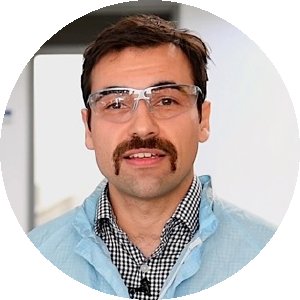


John has 35+ years’ experience of mass spectrometry (MS) and chromatography and has led and managed the MS Facility since 1988, during which time over 1000 users have been trained in the use of modern MS. He has 117 peer-reviewed publications, H-index is 35, and has delivered innovative approaches to MS and chromatography-MS, e.g. the first academic open access MS instrumentation in 1995, open access LC-MS, GC-MS and then SFC-MS in 2014 John has supervised 22 students who graduated with PhDs, and is currently supervisor to four PhD students, and second supervisor to a further five PhD students. All of his PhD studentships have been jointly funded by industry, spanning the pharmaceutical, agrochemical, petrochemical and polymer chemistry sectors.
He is a Fellow of the Royal Society of Chemistry (RSC), Chartered Chemist, Chartered Scientist, Member of RSC Analytical Division Council (2014-20), Chair of the RSC Separation Science Group (2009-) and President of the International Mass Spectrometry Foundation (2018-22). He is the only person to have been Chair of the BMSS and the RSC Separation Science Group.
John is also a diligent PhD examiner who is frequently called upon (19 Universities – both UK and abroad) and presently is external examiner at Robert Gordon University (Analytical MSc).
In 2016-17 he was awarded the BMSS lectureship, a role he took very seriously, giving 18 lectures across the UK targeted at PhD students, covering over 4500 miles (mainly by train!) and in 2021 John was presented with the British Mass Spectrometry Society medal.
John’s research ability is to apply his skills in analytical science to a broad range of challenging problems and systems. He is enthusiastic about collaborative working and applying new technologies, and applying his research approaches to a range of applications new environmental projects, whilst others aligns to the petrochemical industry, agrochemicals and pharmaceutical (including therapeutic oligonucleotides).
He is director of the SW Regional GCxGC-HRMS facility, and in the process of enabling the equivalent SW Regional LCxLC-IMS-HRMS facility that should be commissioned early 2025.
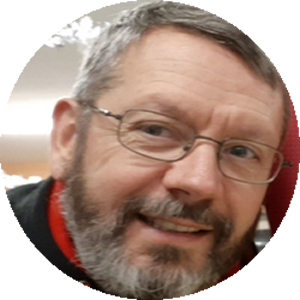
Diane is the Founder, Director and Senior Consultant of Anthias Consulting Ltd, an independent provider of analytical training and consultancy. Diane is a visiting fellow and consultant at The Open University, Immediate Past-President of the Royal Society of Chemistry Analytical Sciences and Immediate Past-Chair of the Analytical Chemistry Trust Fund.
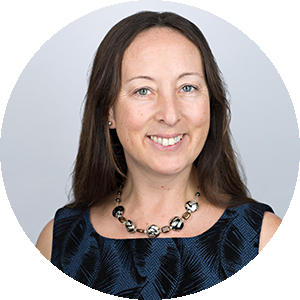
Eamonn obtained his MSci in Chemistry from the University of Bristol and DPhil at the University of Oxford within the laboratory of Professor Dame Carol Robinson in 2015.
He joined King's College London as a postdoctoral researcher in Professor Paula Booth’s group in 2015 and was awarded a BBSRC Future Leader (now called Discovery) Fellow between 2016-19. In 2019, Eamonn became a Lecturer in Chemical Biology, starting his independent research group, and Senior Lecturer in 2022.
Eamonn is now a UKRI Future Leaders Fellow and Associate Professor in Molecular Biosciences at the University of Southampton, where he leads leads the Molecular & Precision Biosciences research theme.
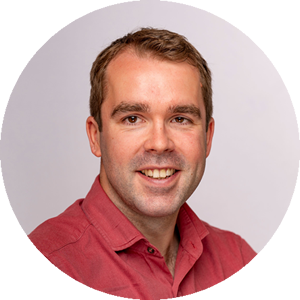
Environmental Enterprise Account Manager at Agilent responsible LC, GC, Spectroscopy and hyphenated MS techniques into environmental accounts in the UK.

Ralph is Head of NMR Spectroscopy and Senior Lecturer in the Department of Chemistry at the University of Manchester, providing NMR characterisation, analysis, training and advice to academic and commercial users and collaborators from around the world. He has active industry and research council funded research programmes in the development of novel techniques in high resolution NMR spectroscopy, and their application to problems in chemistry, biochemistry, and medicine. In many cases this work leads to new pulse sequences and software tools. Ralph leads a technical team that provides NMR data from 14 instruments for around 200,000 samples per annum to over 600 research scientists. Ralph sits on the committees of several groups including the RSC NMR Discussion Group, Technology Specialists Network, and the UK Magnetic Resonance Managers Group.

Dr Kathy Ridgway has over 30 year’s laboratory experience as an analytical chemist – mainly working with GC-MS. Whilst working for Unilever Research, she completed a PhD with the University of Loughborough focussed on alternative extraction techniques. Following this, she worked as a technical specialist in Taints and off-flavours at Reading Scientific services limited (RSSL) and now works as a Senior Applications Chemist at Element lab solutions (formally Anatune). Her main focus is on automation of sample preparation protocols and alternative extraction techniques, particularly for food, flavour and fragrance applications. She is an active member of the Royal Society of Chemistry and current secretary of the separation science interest group (SSG).
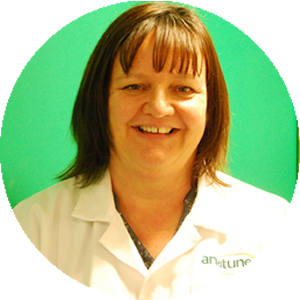
Dr. Leon Barron is a Reader in Analytical and Environmental Sciences at Imperial College London. He holds a BSc(Hons) and PhD in analytical chemistry from Dublin City University, Ireland. He was an academic in Forensic Science at King’s College London for 11 years until 2020 when he moved to Imperial to lead the Emerging Chemical Contaminants group. His research group focusses on early-warning detection and monitoring of toxic chemicals and their impacts on environmental and public health. His laboratory has developed rapid, national-scale capability covering thousands of different chemicals including drugs, personal care products, “forever chemicals”, pesticides and other public health threats to monitor their consumption, exposure and risks. He leads several in-depth studies involving wastewater, freshwater, drinking water, soil contamination and air pollution at both catchment and national levels. He is a Fellow of the Royal Society of Chemistry, the Chartered Society of Forensic Sciences and the Higher Education Academy. He is also an elected member of several councils including the Analytical Chemistry Trust Fund, the Royal Society of Chemistry Analytical Science Community Council and the Separation Science Interest Group Council.
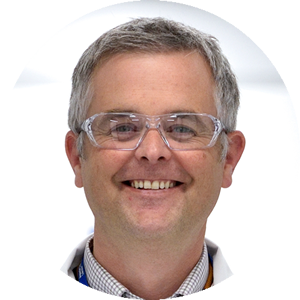
Dr Sam Whitmarsh has two decades of R&D experience at AstraZeneca, BP, and CatSci. After completing his PhD at the University of Bristol, he held roles in analytical science at AstraZeneca, founded BP's UK mass spectrometry facility, and led the BP Global Analytical Science Network. Sam joined CatSci as head of scientific operations in 2020 and became Director of Analytical Science and Digital Transformation in 2022. Sam is a Royal Society of Chemistry Fellow serving with the Separation Science (SSG) and Chemical Information and Computer Applications (CICAG) interest groups.

Jackie began research into fundamental aspects of mass spectrometry during a PhD at the University
of Warwick, UK, before continuing at the University of Waterloo, Canada. Employment followed as Senior Scientist for Bruker Daltonics Ltd supporting all civilian MS-based product lines. Returning to University, at Durham University, she established a research group in mass spectrometry and managed the University MS service. She took up the post of Reader at Teesside University in the Waters Centre for Innovation before relocating to the University of York where she is the Academic Lead for Centre of Excellence in Mass Spectrometry.
Current research projects span a wide range of applications (primarily pharmaceutical, agrochemical, lipids, metal-ligands and air- and solvent-sensitive samples), but at the core, research focuses on developing mass spectrometry, from the high performance of FT ICR MS through to the transportable quadrupole MS, and employing chromatographic separation and ion mobility separation for complex samples.
She is the Focus Group Lead for the International Mass Spectrometry Foundation, and member of the RSC SSG committee.
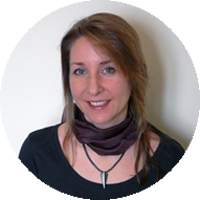
Lewis is a Senior Innovation Manager at Sensient Flavors & Extracts. He is responsible for R&D of natural extracts, globally, and Analytical and Sensory within Europe.
Lewis began his career with Firmenich (formerly Danisco Flavours) where his work was primarily based on natural extracts, process flavorings and investigating aroma - matrix interactions. He then joined Mars, initially as a Chocolate Scientist before moving to Mars’ petcare segment. During this time, Lewis’ work changed from flavor analysis to responsibility for fundamental research on aroma.
Lewis is a member of the RSC, where he is part of the Separation Science Group committee.

Ruth is an Associate Professor at Swansea University with over 20 years’ experience in analytical science. Ruth undertakes innovation-led research focussing on analytical technologies and methods for medical/chemical analysis, with recent work concerning environmental medicine, VUV spectroscopy, mass spectrometry and sample preparation technology development. Her research supports the R&D of multinational companies, government agencies and SMEs, with collaborators that span analytical technology, waste management, and environmental regulators. Her innovation-led projects have secured financial support from industry, UKRI, EU and charities, and advanced commercial and/or regulatory services, expanded product applications and resulted in high impact publications.
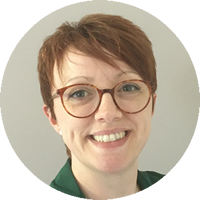
Graham is an experienced analytical chemist having worked in chromatography and mass spectrometry for over 40 years. He has recently retired from the University of Portsmouth having worked there for over 30 years. His recent research interests are the monitoring of a wide range of organic pollutants (e.g. pesticides and pharmaceuticals) in environmental waters using a range of analytical techniques. He is the inventor of the Chemcatcher passive sampler, now widely used worldwide to measure time-averaged concentrations of pollutants in water. Graham has published widely in this area and given numerous scientific presentations across the world. He supervised a number of research students and Master students to completion. Graham is a long time member of Royal Society of Chemistry Separation Science and Water Science Forum committees.
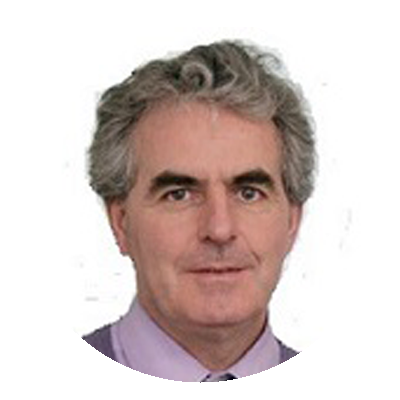
Lisa Hinchliffe holds a BSc(Hons) in Chemical and Pharmaceutical Sciences [University of Sunderland] and pharmaceutical chemistry PhD [University of Derby]. With 25 years' working in Chemistry, Manufacturing and Control (CMC) Regulatory roles for Clinical Trials, Licensing and Post-approval on large and small molecules for both smaller and global pharmaceutical organisations including GSK, MSD, AZ and Novartis Vaccines, Lisa has operated a specialist Regulatory CMC consultancy for the past 15 years. Lisa is a Chartered Chemist, Chair of the Joint Pharmaceutical Analysis Group and an active Member of both the RSC and TOPRA.

Stefaniya is a pharmacist with experience in natural products research, analysis of small molecules, and volatile organic compounds (VOCs). Stefaniya is a researcher in the volatomics lab at the Department of Experimental Medicine and Pediatrics, University of Antwerp, Belgium, which collaborates tightly with the University Hospital Antwerpen (UZA). She has experience with several analytical techniques, including LC-MS and GC-MS.
Stefaniya graduated cum laude in pharmacy at the Medical University Sofia, Bulgaria, and received the FWO Ph.D. fellowship at the NatuRA (Natural Products Research and Analysis) lab at the University of Antwerp. Her research focused on investigating the antiglycation activity of several medicinal plants through LC-MS methods. Then, she gained experience in isolating pure compounds from plant extracts and developing bioanalytical methods to test the activity of those natural products.
After university, Stefaniya supported the BPO (Business Processes & Operations) unit at Johnson & Johnson as a process planning liaison, working on managing resources and time frames in various projects for novel drug candidates. She performed routine analysis and method development for small molecules at the Food Research Center of Cargill, Vilvoorde, Belgium. The work focused on HPLC and LC-MS analysis.
Stefaniya is now managing the analytical workflow for GC-MS analysis for several medical and bioengineering Ph.D students at the University of Antwerp. The projects cover the investigation of volatile organic compounds (VOCs) as biomarkers for diagnosing or monitoring malignant diseases (mesothelioma), gastrointestinal diseases (inflammatory bowel disease), health effects of air pollution, and bronchopulmonary dysplasia.

Dr Ali Salehi-Reyhani is a Lecturer in Convergence at Imperial College London. He is a UKRI Innovation fellow and holds an ACTF-funded lectureship from the Community of Analytical Measurement Science UK. He leads the Analytical Systems Research group and is based in the Dept. Surgery & Cancer in the Faculty of Medicine where his research team applies miniaturization and microfluidic engineering to analytical methods and their translation driven by clinical and societal need. He is helping develop the national interface between academia and industry in the UK as a Chair for Complex Mixtures, Separation and Detection as part of the Community of Analytical Measurement Scientists (CAMS-UK) and currently sits as the Deputy Chair of the of IUPAC Early to Mid-career sub-committee and a member of IUPAC Division V.
